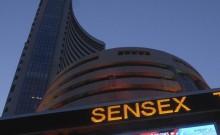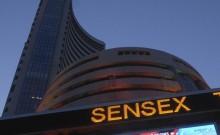![[Representational image] Smoking](https://data1.ibtimes.co.in/en/full/626778/smoking.jpg?h=450&l=50&t=40)
The cost of smoking and online gaming in India could be headed higher, as the government considers imposing a uniform 40 percent Goods and Services Tax (GST) on 'sin goods' under its proposed GST 2.0 framework.
Currently, cigarettes are already among the most heavily taxed products in the country, with a tax burden of nearly 48–55 percent of the maximum retail price (MRP). This comes from a base GST of 28 percent, a variable cess of 5–36 percent, and a fixed cess per cigarette stick. The new plan would merge these into a flat 40 percent GST slab — a move experts say is unlikely to ease the burden for smokers, and may even push prices higher.
Online gaming platforms, another category under 'sin goods,' would also face the same 40 percent levy, making in-app purchases and gaming transactions more expensive for consumers.
Higher costs for consumers
While on paper the new slab looks like a reduction, analysts warn that the government will ensure the effective tax remains at least neutral, if not slightly higher. Brokerage firm Emkay Global noted that despite a flat 40 percent rate appearing lower, the 'sin' classification means consumers should not expect relief. Instead, prices of cigarettes and online gaming services may continue to climb, reflecting the government's intent to discourage consumption.

"Given the current framework and public health considerations, a neutral-to-slight hike in taxation on cigarettes is the most likely outcome. The industry should not expect any significant benefits," Emkay Global said in a note.
GST 2.0
The move comes as part of a larger GST 2.0 reform that seeks to simplify the indirect tax regime by reducing the current multiple slabs into a two-rate structure of 5 percent and 18 percent. However, 'sin goods' such as tobacco and online games are being kept in the maximum 40 percent category.
The overhaul is expected to be rolled out around Diwali, following Prime Minister Narendra Modi's Independence Day address that hinted at the next phase of GST reforms. The Centre has also indicated it will work with states to build consensus before finalizing the new structure.
Health advocates have long pushed for high taxation on tobacco products as a deterrent, while policymakers argue that higher levies on online gaming can help regulate an industry often criticized for its addictive nature. By retaining a 40 percent slab, the government is signaling its continued commitment to public health and social responsibility, even as it reforms the broader tax system.
For consumers, however, the bottom line is clear: cigarettes and online games are set to become more expensive in the months ahead.

















